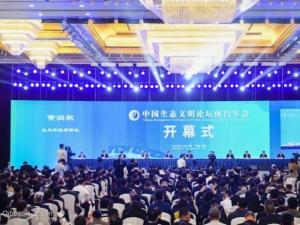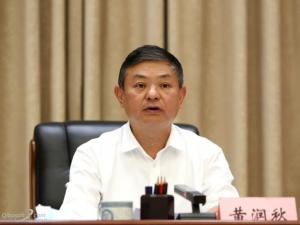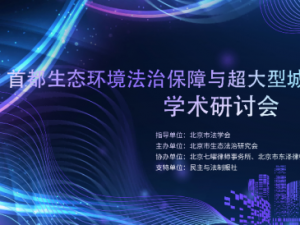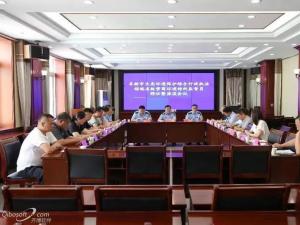AN eva lUATION OF THE CHINESE LEGAL SYSTEM(八)
|
n Economy was officially 28 Hai Yu & Guomei Zhou, 绿色经济:环境优化经济增长的新道路 (Green Economy: A New Method for Better Environmental Economic Growth), (1) 环境经济 (Environmental Economics) 58, 61 (2010). 122 FRONTIERS OF LAW IN CHINA [Vol. 8: 103 released at UNEP’s 2009 Inter-Ministerial Conference. The report suggests that green economy may play an important role in resolving the economic crisis, creating jobs and protecting the environment. Soon after, this concept was strongly supported at the G20 Summit, and was added to the G20 Declaration. In China, there are two other concepts relating to green economy, namely recycling economy and low carbon economy. There have already been legislations on recycling economy, which address problems of resources and environment contamination. “Low carbon economy” has appeared in some legislative decisions and government reports.29 This places emphasis on emission reduction of greenhouse gas and energy issue. Comparatively speaking, green economy is a more open system, and more advanced than the “Green Economic Accounting” that has been conducted in China. It includes the comprehensive contents of recycling and low carbon economy, and highlights the direction of national economic development, the transformation of the growth mode and the ecological constraint on economic behaviors by governments. Chinese government is taking green economy as a new action for implementing sustainable development. There are both domestic and international pressures. Deepening the economic reform requires switching the economic development mode; while as a main carbon emitter, China has the obligation to reduce the emission. These pressures are bringing new opportunities and vigor to China’s sustainable development. “Conservation” and “development,” two elements of sustainable development, have been seen as contradictions in practice traditionally. In both international and domestic policymaking, these two concepts are in heavy dispute, impeding the effective implementation of sustainable development. In lieu of these, the concept of a green economy provides opportunities and choices for incorporating ideas and methods on breaking through the bottle-neck of sustainable development. The concept of a green economy is of great importance in the context of economic globalization in 29 Refer to “Resolutions of the Standing Committee of the National People’s Congress on Actively Addressing Climate Change” on 27 Aug 2009. Premier Wen Jiabao stated, “… to develop new economic growth point especially low carbon economy. To build up industries, constructions, transportation system with low carbon emission and conduct low carbon economy experiment.” 2013] CHINESE LEGAL SYSTEM ON SUSTAINABLE DEVELOPMENT 123 China. It contributes to providing solutions of problems caused by environmental degradation and crisis created by commercialization and bringing about sustainable development for China and global economy. China’s current implementation of green economy can be summarized as follows: taking “ecological civilization” as the logo of a civilized society, and the low-carbon economy as the focal point. In its 2007 report, the Chinese Communist Party proposed “to build up an ecological civilization, and to create industrial structures, growth and consumer patterns on the basis of energy conservation and ecological protection.” China’s ecological construction is in high conformance with the United Nations’ concept of green economy. CONCLUSION Although the binary purpose of sustainable development is vague and might cause deviation in implementation, its features of coordination, diversity, inclusiveness and openness are in conformance with the values of contemporary society. The charm of sustainable development lies in its vigor and space to grow. The success and universal acceptance of sustainable development achieved in China provides a motivation and guarantee for its rapid economic development. Nevertheless, owing to some interior problems (e.g. the conflict between the binary purposes, excessive government-leading mechanism and the tendency of utilitarianism) and China’s present situation, it is not easy to implement sustainable development. In order to break through these bottlenecks and improve the systems and theories of sustainable development, it is important to have special legislations, and scientific analysis and eva luation of the legal system. Efforts in addressing climate change and domestic reforms should go along so as to promote the mechanism of sustainable development. |
我来说两句
已有0评论 点击全部查看






